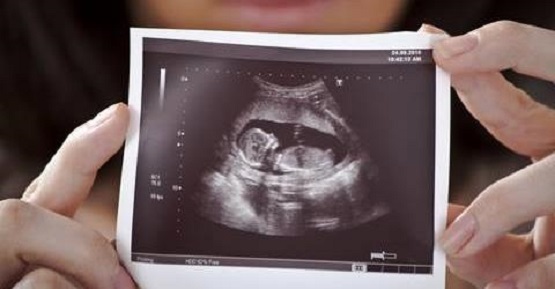A West Virginia bill that would end taxpayer funding for abortions in the state is slated for a public hearing Monday in the state House.
West Virginia is one of 17 states that funds elective abortions for low-income women through Medicaid. State House Bill 4012 would end taxpayer funding for abortions except when medically necessary to save the mother’s life, the AP reports.
Since 1977, state taxpayers have been forced to pay millions of dollars for tens of thousands unborn babies’ abortion deaths, according to West Virginians for Life.
“The federal government limits tax funding of abortions to cases of rape, incest and life of the mother – but West Virginia will pay for Medicaid abortions for any reason,” the pro-life group said on its website. “It’s time to get West Virginia out of the abortion business.”
The pro-life group is holding a rally Monday at the Capitol to support the No Taxpayer Funding of Abortion Act.
In 2017, state taxpayers paid for 1,560 unborn babies to be aborted through Medicaid, according to the report. In 2013, about 500 unborn babies were aborted with taxpayer funds, the AP reports.
The bill recently passed the state House Health and Human Resources Committee and now is being considered in the Judiciary Committee, according to WV Metro News. The state Senate is considering a similar bill, Senate Bill 417.
Very few Americans support taxpayer funding for abortions, and West Virginia lawmakers are working to protect state taxpayers’ money. It was a West Virginia Supreme Court decision in 1993, not voters’, that allowed taxpayer-funded abortions in the state.
Here’s more from the Metro News:
The policy dates back to State Supreme Court’s 3-2 decision in 1993 in Women’s Health Center of WV, et al. v. Panepinto, et al.
Justice Margaret Workman (who remains on the court today) wrote for the majority that the state, acting “for the common benefit, protection and security of the people,” had an obligation to provide medical care for the poor “in a neutral manner so as to not infringe upon the constitutional rights of our citizens.” Part of that medical care was abortion.
However, Workman’s conclusion faces significant legal challenges.
Justice Tom McHugh—one of two dissenting Justices, along with William Brotherton—wrote that while the Roe v. Wade decision established a constitution right to an abortion and a protection from burdensome interference, it did not require taxpayers to pay for that right.
Some media outlets predict the legislation will pass.
Polls consistently show that most Americans do not want their tax dollars to pay for abortions. A Marist poll found that more than two-thirds of Americans oppose taxpayer funding of abortions, including a majority of women and people who identify as pro-choice.
Follow LifeNews.com on Instagram for pro-life pictures and the latest pro-life news.
In October 2016, a Politico/Harvard University poll also found that just 36 percent of likely voters supported taxpayer funding for abortions, while 58 percent opposed it.
Interestingly, the poll also found that voters who make more than $75,000 were more supportive of forcing taxpayers to fund abortions (45 percent in favor), while those who make $25,000 or less were strongly against it (24 percent in favor). Interestingly, the people most likely to qualify for a taxpayer-funded abortion through Medicaid are the ones who oppose taxpayer-funded abortions the most.
Americans understand that their tax dollars would be better spent helping struggling mothers and their families, not pushing them to abort their unborn babies.
These are the 17 states that fund abortion through Medicaid taxpayer dollars:
- Alaska (court order)
- Arizona (court order)
- California (court order)
- Connecticut (court order)
- Hawaii (voluntarily)
- Illinois (voluntary)
- Maryland (voluntarily)
- Massachusetts (court order)
- Minnesota (court order)
- Montana (court order)
- New Jersey (court order)
- New Mexico (court order)
- New York (voluntarily)
- Oregon (court order)
- Vermont (court order)
- Washington (voluntarily)
- West Virginia (court order)








